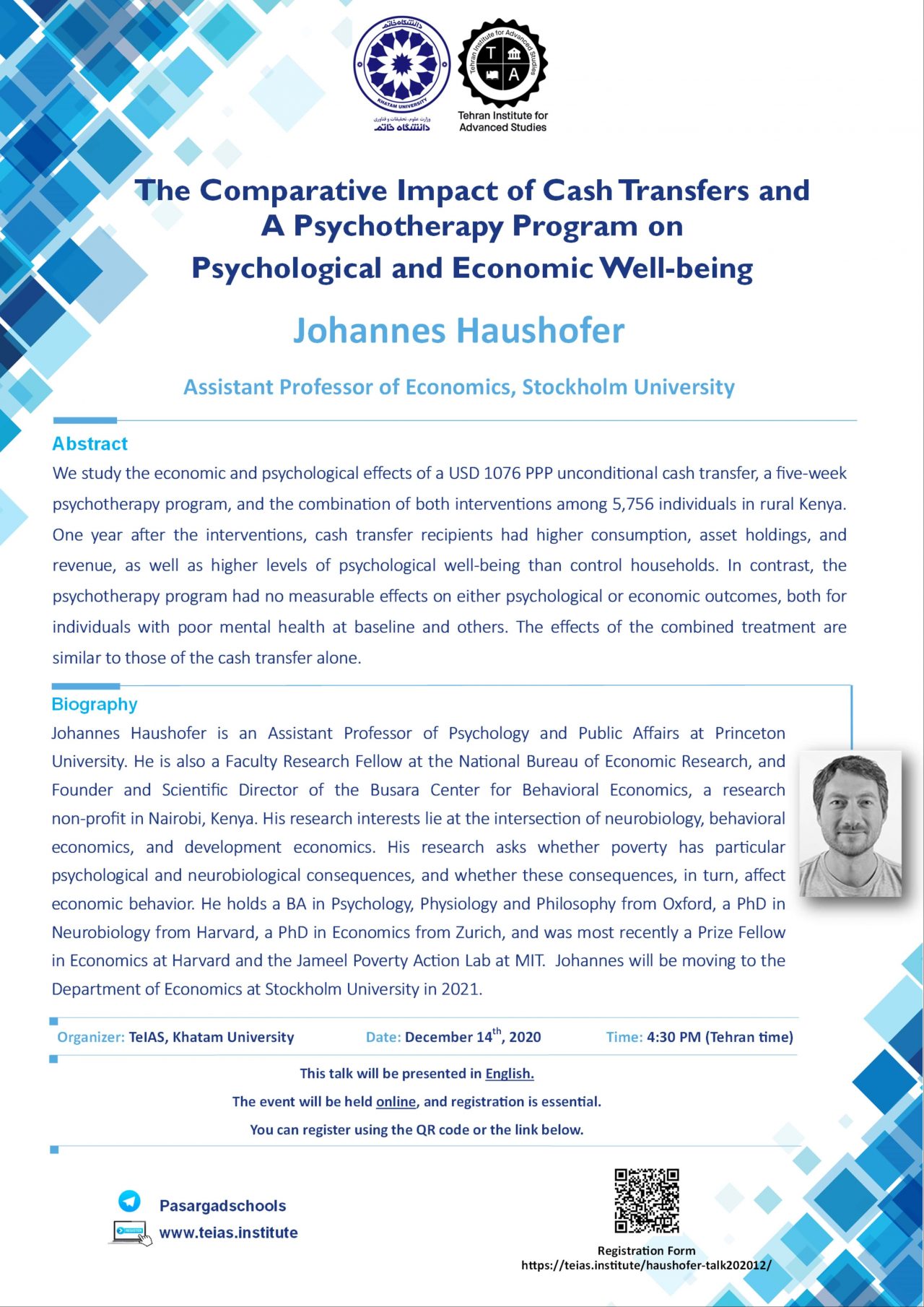
Johannes Haushofer
Assistant Professor of Economics, Stockholm University
Overview
We study the economic and psychological effects of a USD 1076 PPP unconditional cash transfer, a five-week psychotherapy program, and the combination of both interventions among 5,756 individuals in rural Kenya. One year after the interventions, cash transfer recipients had higher consumption, asset holdings, and revenue, as well as higher levels of psychological well-being than control households. In contrast, the psychotherapy program had no measurable effects on either psychological or economic outcomes, both for individuals with poor mental health at baseline and others. The effects of the combined treatment are similar to those of the cash transfer alone.
Biography

Johannes Haushofer was an Assistant Professor of Psychology and Public Affairs at Princeton University. He is also a Faculty Research Fellow at the National Bureau of Economic Research, and Founder and Scientific Director of the Busara Center for Behavioral Economics, a research non-profit in Nairobi, Kenya. His research interests lie at the intersection of neurobiology, behavioral economics, and development economics. His research asks whether poverty has particular psychological and neurobiological consequences, and whether these consequences, in turn, affect economic behavior. He holds a BA in Psychology, Physiology and Philosophy from Oxford, a PhD in Neurobiology from Harvard, a PhD in Economics from Zurich, and was most recently a Prize Fellow in Economics at Harvard and the Jameel Poverty Action Lab at MIT. Johannes will be moving to the Department of Economics at Stockholm University in 2021.
Video
